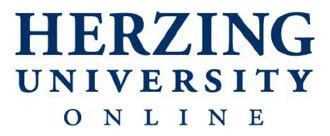Would you like to seek decision-making opportunities within the healthcare industry? If so, you might benefit from an undergraduate program such as Herzing University's Bachelor of Science in Healthcare Management. Read on for program requirements and highlights.
<h2 id="section---FrequentlyAskedQuestions">Frequently Asked Questions</h2>
<h3 id="section---WhatKindOfProgramIsIt">What Kind of Program Is It?</h3>
<p>Herzing University's Bachelor of Science in Healthcare Management program is designed to educate you in methods to ensure a better quality of life for others. The program is not only designed to offer instruction in areas such as medical terminology, information systems, and medical codes, but it will also allow you to analyze trends in the healthcare industry. As you seize opportunities to gain solid business and human resource management skills, you might also learn to build cohesive teams of workers. Other areas of program emphasis could include the study of legal and ethical standards, statistics, epidemiology, and finance. With hard work and dedication, you could be able to effectively apply your acquired technical abilities and knowledge of healthcare practices in varied settings. This program is offered online and on campus.
</p>
<h3 id="section---WhatAreThePrerequisites">What Are the Prerequisites?</h3>
<p>As a program applicant, you should enjoy the challenge of taking on a leadership role. In addition to a caring, compassionate nature, excellent communication and interpersonal skills are essential. Though requirements may vary, you should have earned a high school diploma or equivalent.
</p>
<h3 id="section---WhatAreTheCourseRequirements">What Are the Course Requirements?</h3>
<p>In order to graduate from this program, you must complete a minimum of 121 semester credit hours. You will take 27 credits in management courses, 15 credits in healthcare management courses, 37 general education credits, three credits in an internship, and two credits in personal development courses. Up to 37 credits can be transferred in from completion of a healthcare-related associate degree program.
</p>
<p><u>Required Management Core Courses</u>
</p>
<p />
<table border="1"><tr><th>Course Code </th><th>Course Title</th></tr>
<tr><td>AC 107 </td><td> Accounting I</td></tr>
<tr><td>BU 106 </td><td> Introduction to Management</td></tr>
<tr><td>BU 220 </td><td> Principles of Marketing</td></tr>
<tr><td>BU 302 </td><td> Leadership and Organizational Behavior</td></tr>
<tr><td>BU 329 </td><td> Managing Project Teams</td></tr>
<tr><td>BU 407 </td><td> Quantitative Decision Making</td></tr>
<tr><td>EC 111 </td><td> Principles of Microeconomics</td></tr>
<tr><td>HC 310 </td><td> Medical Law and Ethics</td></tr>
<tr><td>HI 305 </td><td> Healthcare Finance</td></tr>
</table><p><u>Required Courses in Healthcare Management</u>
</p>
<p />
<table border="1"><tr><th>Course Code </th><th>Course Title</th></tr>
<tr><td>HC 305 </td><td> Healthcare Human Resource Management</td></tr>
<tr><td>HC 311 </td><td> Management of Patient Records</td></tr>
<tr><td>HC 401 </td><td> Current Issues in Healthcare</td></tr>
<tr><td>HC 405 </td><td> Healthcare Quality</td></tr>
<tr><td>HI 300 </td><td> Epidemiology and Applied Healthcare Statistics</td></tr>
<tr><td>HI 450 </td><td> Healthcare Information Systems</td></tr>
</table><p><u>Transfer Credits from Associate Degree in Healthcare and Healthcare Electives</u>
</p>
<p>Students of this program must have at least 37 semester credit hours from a combination of healthcare electives and credits transferred from the core courses of a healthcare-related associate degree.
</p>
<p><u>Required Capstone or Internship</u>
</p>
<p />
<table border="1"><tr><th>Course Code </th><th>Course Title</th></tr>
<tr><td>HC 490 </td><td> Healthcare Management Internship</td></tr>
<tr><td>HC 492 </td><td> Capstone Project</td></tr>
</table><p><u>Required Courses in General Education</u>
</p>
<p>Those who enroll in this bachelor's degree program must complete a minimum of 37 semester credit hours in general education courses such as humanities, natural science, and mathematics.
</p>
<p><u>Personal and Professional Development Courses</u>
</p>
<p />
<table border="1"><tr><th>Course Code </th><th>Course Title</th></tr>
<tr><td>PD 121 </td><td> Professional Development I</td></tr>
<tr><td>PD 202 </td><td> Professional Development II</td></tr>
<tr><td>PD 214 </td><td> AS / AAS / BS Diploma Internship Preparation</td></tr>
</table><h3 id="section---WhatCouldIDoAfterIGraduate">What Could I Do After I Graduate?</h3>
<h4 id="section---CareerOpportunities">Career Opportunities</h4>
<p>Following graduation, you might seek entry-level employment with clinics, insurance companies, hospitals, nursing homes, physicians' private offices, or government institutions. You could seek responsibilities in patient care services, health information systems, materials management, planning and development, scheduling, personnel administration, records management, or policy making and analysis. You might pursue positions such as:
</p>
<ul><li>Medical Office Manager
</li><li>Human Resource Representative
</li><li>Medical Staff Representative
</li></ul><h4 id="section---AdvancedDegrees">Advanced Degrees</h4>
<p>Before you could seek key administrative positions, such as director or chief executive officer, you will likely need a master's degree. You could take courses in public health, healthcare payment systems, quality assurance, operations management, financial accounting, and negotiations. Here are some examples of advanced degrees you might opt to pursue following your completion of this Herzing University program:
</p>
<ul><li>Master of Science in Healthcare Management
</li><li>Master of Business Administration in Healthcare Management</li></ul>



.svg)


